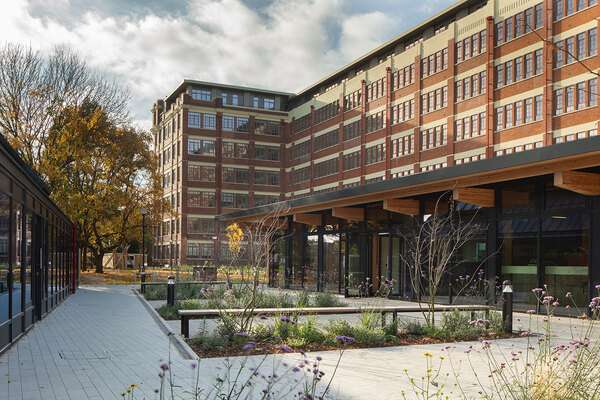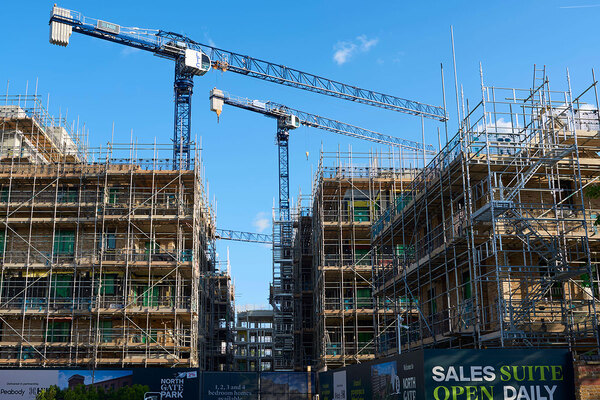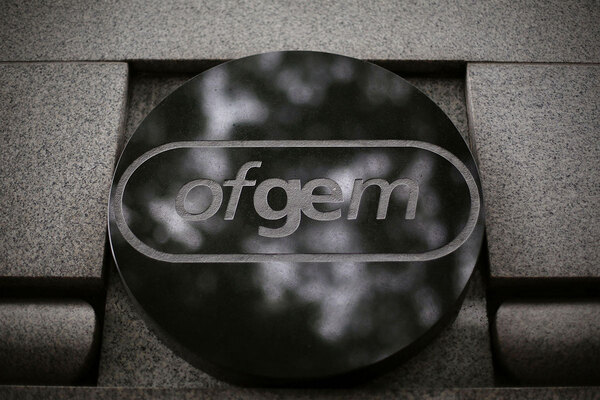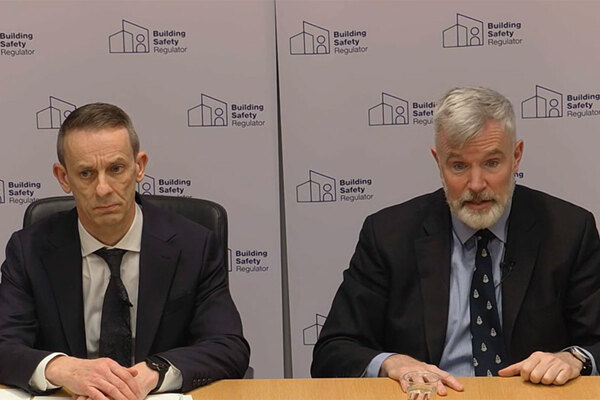Regulatory judgements: two housing associations downgraded for governance
Two small housing associations have had their governance ratings downgraded as part of the latest round of judgements published by the Regulator of Social Housing (RSH).
Habinteg and South Liverpool Homes (SLH) had their ratings for governance downgraded to G2, which means they are still compliant but need to improve some aspects of their governance arrangements.
The English regulator said Habinteg, which owns roughly 3,400 homes across 86 different local authority areas, “needs to strengthen elements of its risk management and internal controls assurance framework, its stress-testing and its delivery of value for money”.
It said Habinteg’s board “has not got adequate assurance on the management of health and safety risks” and that “data weaknesses” in this area need addressing.
The landlord also must improve its approach to stress-testing as “scenarios do not test against security in stress situations”, “recovery planning is under-developed and the effectiveness of identified mitigation strategies needs to be evidenced”, the judgement said.
On value for money, the RSH said Habinteg “cannot evidence that it has used its financial capacity effectively over a number of years to deliver its strategic objectives and it has under-performed against its strategic targets in some important areas”, including development and customer satisfaction.
The association has maintained its V1 rating for financial viability – the highest rating that can be achieved.
Habinteg chair Manny Lewis and chief executive Nick Apetroaie said: “Habinteg accepts today’s regulatory judgement that we continue to meet the governance standard and that there are areas we need to improve on. The feedback we have received recognised the changes that are already underway and pointed us towards where we need to do more.
“We welcome the regulator’s judgement that Habinteg has the financial capacity to address these challenges, having retained our top grading for viability. Our long-term business plan is supported by strong liquidity and low gearing. We will use our financial strength as a platform to accelerate change and deliver the best possible services to Habinteg tenants.
“We will now work with the regulator, the board, our staff and customers in order to further strengthen our governance arrangements.
“The need for affordable, safe and accessible homes has never been greater. We will continue to provide accessible homes and promote independence for disabled people and their families, which will always remain at the very heart of our mission.”
Meanwhile, the regulator said SLH, which owns roughly 3,800 homes, “needs to strengthen board oversight of the business and improve its risk management and internal controls assurance framework to ensure it is managing its affairs with sufficient effectiveness and diligence”.
It said “control weaknesses have presented in SLH’s approach to development, rent setting and property allocations” and that “SLH also needs to review its strategic approach to delivering value for money to make more effective use of its financial resources”.
The RSH said the landlord is engaging with it to “address the areas of weakness identified” and has “commissioned a fundamental review of its governance and is currently developing a new strategic plan”.
SLH has also maintained its V1 rating for financial viability.
In a joint statement, SLH chief executive Julie Fadden and chair David Jepson said: “We always aim to achieve the highest standards in everything we do and while we are very disappointed with the revised grade on governance, we remain a compliant organisation with the highest grade for financial viability.
“We will work positively with the regulator to recover our G1 rating as soon as possible, helping us to continually improve services for our tenants.”
Also today, the RSH restated its G1/V2 rating for Rochdale Boroughwide Housing (RBH) but changed the basis for its viability grade following an in-depth assessment (IDA).
A V2 grading indicates a “need to manage material risks to ensure continued compliance” with the financial viability standard.
In a regulatory judgement for the 12,700-home social housing mutual, the regulator said: “RBH continues to deliver a large-scale regeneration project.
“The investment expenditure and additional debt required for the project are significant, weakening RBH’s financial profile in the medium term.
“During this period, loan covenant compliance is put under pressure.
“These exposures give rise to material risks that RBH needs to continue to manage and which reduce its capacity to respond to adverse events.”
RBH intends to build 496 homes over the next five years and is currently moving residents out of the College Bank Estate for regeneration, in a project which has been controversial locally.
The regulatory judgement added that RBH’s governance arrangements “enable it to adequately control the organisation” and that its “financial plans are consistent with, and support, its financial strategy”.
Gareth Swarbrick, chief executive of RBH, said: “I am very pleased that we have received this judgement in the same week that we celebrate eight years as a pioneering mutual housing society, jointly owned by our tenants and employees.”
He added: “The judgement acknowledges that delivering the quality of homes that town centre residents deserve, especially in our high-rise blocks, requires a significant level of investment, and that until this element of the regeneration is complete, some financial pressures will remain.”
Another six regulatory judgements were published today following IDAs, all resulting in G1/V1 grades being maintained – the highest possible score.
They were for Sovereign Housing, Home Group, Together Housing Group, Curo, Plymouth Community Homes and Community Gateway Association.
Related stories












